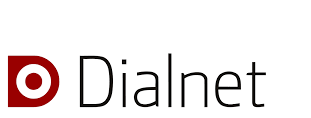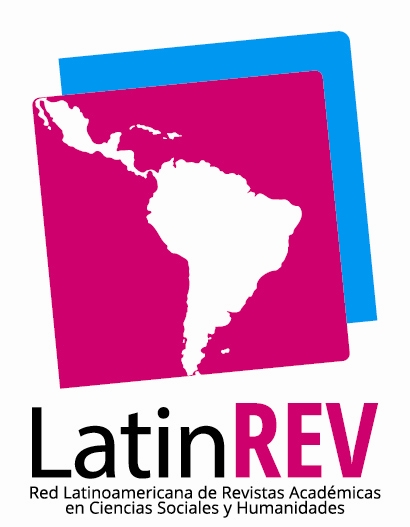Statement of Best Practices
The Argonautas Journal team understands that the publication of its contents must be subject to criteria of authenticity and scientific honesty, credibility and veracity of the results. Accordingly, the editorial process relies on the code of conduct and best practices defined by the Committee on Publication Ethics (known by its Spanish acronym as COPE). Editors, reviewers, and authors must be familiar with and abide by the principles adopted by the journal within this framework, in accordance with its Editorial Policy, while also promoting the upholding of the Code.
Editorial team
It will optimize the quality of published content in terms of relevance, consistency, and suitability.
It will maintain updated guidelines related to the editorial process and promote its continuous improvement, including both the Editorial Policy and the peer review system used, and will regulate the accountability of its contributors.
It will conduct qualified assessments so that peer review is relevant and appropriate to the field and topic of reference.
Within the parameters established by the Editorial Policy, it will evaluate submitted documents based on their intellectual merit, without any restrictions to schools of thought, nationality, or institutional affiliation, as well as personal attributes of race, sexual orientation, social or religious origin.
It will be strict with regard to practices that violate the integrity of published content, including data falsification and fabrication, manipulation of quotations, content duplication, and plagiarism of the work or parts of it. Texts identified within this category will not be evaluated and, if subsequently detected, will be removed from the journal.
The journal will maintain confidentiality throughout the review process, including the anonymity of the reviewers and authors, the content reviewed, the report issued, and internal communications. Likewise, it will maintain the confidentiality of sensitive data, especially in the case of clarifications, complaints, or claims sent to the journal.
It will use personal information (names and email addresses, among others) in accordance with its stated purposes, without subjecting it to any other purpose or form of disclosure.
It will make corrections, clarifications, and rectifications whenever necessary.
Authors
They will be accountable for the content submitted to the journal. They must guarantee the originality of the documents and associated materials, as well as respect the copyright of third parties. If the document is signed by more than one person, their contribution must be effective and sufficient to endorse co-authorship, in order to publicly assume accountability for the content.
They may not submit the paper already sent to Argonautas to a parallel review or duplicate content that includes another journal, book, presentation, and/or similar means of dissemination (such as inclusion in conference proceedings). Any such actions will be considered violations of best research practices.
Once a paper is submitted, the authors agree to respect and recognize the review and evaluation processes as valid, as well as the associated results.
They must report, preferably as an author's note in the manuscript, the sources of funding that support the study, as well as any additional commitments that could influence the interpretation or validation of the results, whether due to private, governmental, or commercial ties.
They will facilitate and collaborate in the correction of errors arising from the publication process. They also undertake to inform the Editorial Team, through institutional channels, of any relevant errors in their papers so that modifications can be made.
Plagiarism and/or redundancy; falsification and/or fabrication
All contributions submitted to Argonautas must meet the originality standard, which may be violated by plagiarism: the total or partial copying of other works to which one's own authorship is attributed, encompassing ideas, text fragments, data, or various contents. Similarly, Argonautas understands that this includes self-plagiarism and duplication, based on partial reproduction without explicit reference to the original. Any of these actions is considered an improper conduct. If detected, the Editorial Team may make public any scientific malpractice.
Documents containing redundant information do not meet the originality standard. Therefore, extensive content belonging to a previous article by the author(s) cannot be published. In all cases, the link between the source texts must be noted, and the Editors/Reviewers must be provided with all the background information that will allow them to make decisions. Previous publications associated with the paper submitted to Argonautas must be cited, and the differences with respect to the article submitted for review must be explained. On the other hand, articles derived from the same research project will not be considered redundant as long as the focus of discussion is different and the development of the content significantly advances in originality.
Data falsification or fabrication is considered a direct violation of best research practices. This includes any action involving improper manipulation of materials and content, as well as the adulteration or omission of data and/or results. To avoid misrepresentation, sources of information must always be acknowledged according to their authorship, via citation references or, when this is not possible (as it is the case of the use of ongoing research or primary sources), with prior authorization from the counterpart.
Argonautas believes that the best way to prevent plagiarism is through the experts who integrate the reviewer database and are explicitly requested to comment on this matter. In addition, the Editorial Team will collaborate in the general review, including search engines and the use of plagiarism detection software whenever necessary.
If plagiarism or self-plagiarism, as well as data falsification or fabrication, is found, Argonautas will reject the contribution or remove the document from its information system. Likewise, it may revoke the right to submit future contributions to the journal.
Pressure, accusations, and/or grievances
For questions or comments related to editorial decisions and published papers, authors and the academic community should contact the editorial team at the institutional email address.
All communications must be addressed in a respectful manner, with knowledge and consideration to the journal's Editorial Policy. Pressure, accusations, and/or grievances directed toward any member of the Editorial Team and their collaborators, within the framework of their duties, and through any available means (interpersonal or mediated, oral or written), will result in institutional sanctions. This includes the revocation of the right to submit written communications and reporting the situation to the highest authorities of the home and counterpart institutions.
Reviewers
Reviewers will report to the editor any conflict of interest or discovery of authorship upon reading the article submitted for review.
They undertake to conduct an informed and impartial evaluation of the paper, considering its scientific and literary quality within the scope of their competencies and skills. The acceptance or rejection of the article will be based on the relevance of its content, original contributions, and compliance with editorial criteria. Reviewers are required to provide well-founded, constructive, and respectful reasons for their assessments and/or evaluations.
They will alert the Editorial Team to any instances of plagiarism, redundancy, falsification, or fabrication in a paper, whether partial or total.
Peer review is a confidential process. Therefore, they will not share, disseminate, or use the information submitted for review or associated sensitive data. Additionally, they must wait until the manuscript is published to use or reference the materials.
They will comply with the editorial deadlines established when accepting their participation as reviewers. If this is not possible, they must notify the journal's editorial direction well in advance.





